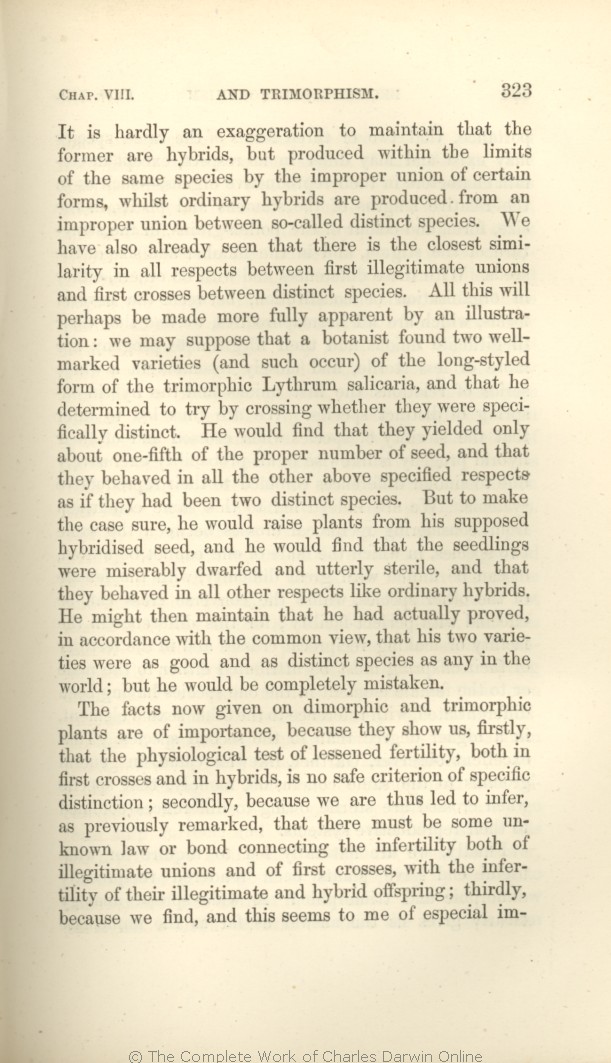It is hardly an exaggeration to maintain that
the former | the former 1866 1869 | | illegitimate plants 1872 |
| between 1866 1872 | | between, 1869 |
| illustration: 1866 1869 | | illustration; 1872 |
|
|
The facts now given on dimorphic and trimorphic plants are
of
importance, | importance, 1866 | | important, 1869 1872 |
| firstly, 1866 | | first, 1869 1872 |
| are thus led to infer, as previously remarked, 1866 |
| may conclude 1869 1872 |
| law or bond 1866 |
| bond which 1869 1872 |
| connecting 1866 | | connects 1869 1872 |
| and of first crosses, with the infertility 1866 |
| with that 1869 1872 |
| and hybrid offspring; 1866 |
| offspring, and we are led to extend the same view to first crosses and hybrids; 1869 1872 |
|









